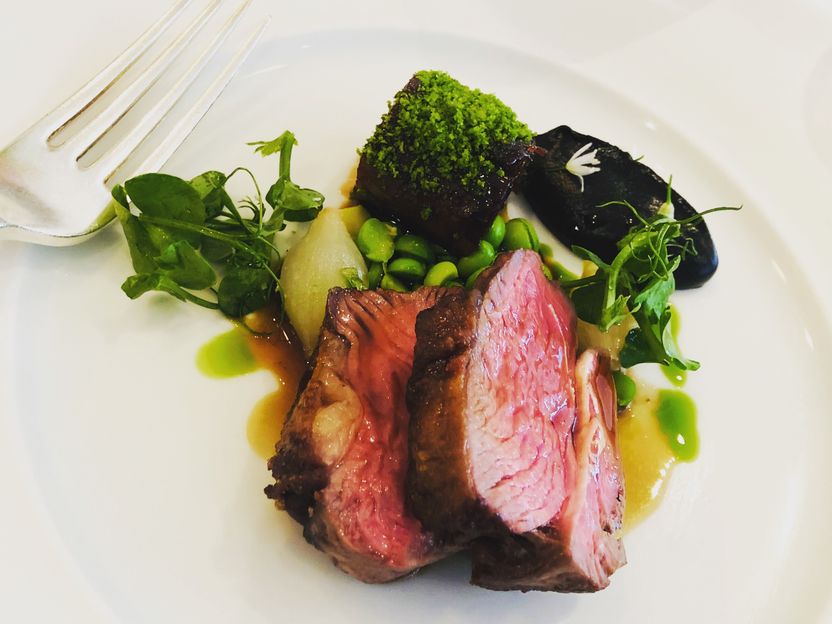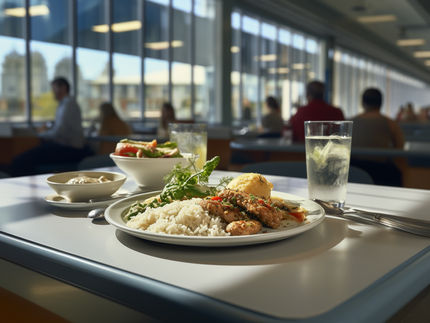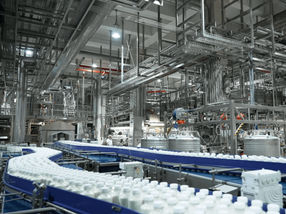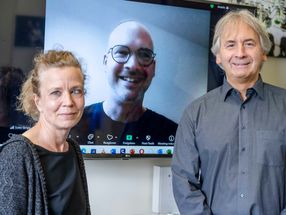What kind of meat will we eat in the future? The Rügenwalder Mühle provides answers
Animal meat, plant-based meat substitutes or cultured meat - what will end up on our plates in the future cannot be predicted with certainty. But some trends are already emerging. Rügenwalder Mühle has therefore entered into its first cooperative ventures to help shape the future of nutrition and, as a first mover in the meat substitute market, is thus very close to the meat of tomorrow. In the recently published report AnGERICHTet, the company also takes a look into the crystal ball.

Foto von David V auf Unsplash
Veganuary has set a record for 2023 with more than 700,000 official participants. According to the organizers, a purely plant-based diet has thus long since ceased to be a trend, but rather the basis of the ongoing nutritional turnaround that is unavoidable in view of the challenges facing our planet.¹ And yet a large proportion of people in Germany cannot imagine meat disappearing completely from the menu at some point, as Rügenwalder Mühle found out in a major study.² But where is the journey heading then? Rügenwalder Mühle also explores this question and the future of our diet in its report "AnGERICHTet. A mood report from Germany's dining tables" gets to the bottom of it. In addition, the family-owned company is looking for answers in collaboration with start-ups and research partners.
Sustainable vision: hybrid and cultured meat
According to the study in AnGERICHTet, 72 percent of respondents do not believe in a completely meat-free world - vegetarians and vegans included. "As a society, we must continue to work to ensure that our form of nutrition is compatible for everyone - for consumers, farmers and, last but not least, the animals. The latter must be kept in such a way that we can eat meat with a clear conscience," says Patrick Bühr, Head of Research & Development at Rügenwalder Mühle. In the report, he takes a look at the future of nutrition. "For me, flexitarianism is the most valuable form of nutrition because it combines animal and plant products," he explains.
According to Bühr, a possible future scenario for meat could be a mixture of meat and a plant-based component: "Hybrid products are a combination of meat and plant proteins. The product contains just enough meat for consumers* to get the taste, texture and bite strength they expect." Cultured meat can also be used instead of animal meat.
The latter also holds great promise for the future. To produce cultured meat, small amounts of cells are removed from animals and then given the nutrients they need to grow and reproduce in a temperature-controlled environment. In this way, the cut grows outside the animal's body and meat is obtained for food production without the need for an animal to die. "This method saves a massive amount of resources quite incidentally, for example by allowing us to significantly reduce the amount of land used for growing fodder or for keeping livestock. These can be used elsewhere. For example, to grow plants for human consumption. In addition, we can significantly reduce CO2 emissions caused by animal and plant husbandry," explains Bühr. "That's why we at Rügenwalder Mühle are open to cultured meat and see it as a sensible addition to our diet."
The great paradigm shift
To push the issue even further, Rügenwalder Mühle entered into two forward-looking partnerships last year: Together with the Swiss food tech start-up Mirai Foods, the family-owned company is working on the production of hybrid products based on plant proteins and cultured meat. With the German-Dutch research project RESPECTfarms, Rügenwalder Mühle is also researching ways to produce cultured meat locally. "There are so many great founders* who boldly go out and found start-ups with great ideas. For Rügenwalder Mühle, it is clear that innovation in the future will only work together - through partnerships and collaborations. In my opinion, this is the very big paradigm shift in the world of food production," says Bühr.
The RESPECTfarms project received final approval in January to launch its feasibility studies on decentralized meat production. This gives conventional agriculture the opportunity to grow meat directly on existing farms using animal cells. In addition to Rügenwalder Mühle, the European Union, NGOs and other industry partners have invested in the project. The first results of decentralized cultured meat production should be available within the next 18 months.³
¹ veganuary.com/en/veganuary-2023-draws-record-balance/
² Online survey in YouGov Panel from 29.07.2022 - 05.08.2022; sample: 3,007 respondents, representative of the German population aged 18 and older by age, gender and region.
³ vegconomist.com/cultivated-meat-cell-culture-biotechnology/respectfarms-cultivated-meat-in-europe/.
Note: This article has been translated using a computer system without human intervention. LUMITOS offers these automatic translations to present a wider range of current news. Since this article has been translated with automatic translation, it is possible that it contains errors in vocabulary, syntax or grammar. The original article in German can be found here.






























































